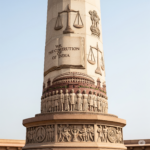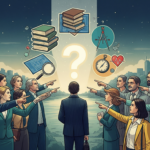
Rediscovering Our Stories: The Impact of Mythology on Our Lives
- admin
- August 1, 2025
- Philosophy
- 0 Comments
How Ancient Tales Continue to Shape Modern Identity and Values
In a world dominated by technology and rapid change, ancient mythology is experiencing a resurgence. These timeless stories, which once served as moral compasses and cultural cornerstones, are finding new relevance in shaping identity, values, and societal behavior. Across India and beyond, the rediscovery of mythology is sparking discussions on its influence in contemporary life, from education and entertainment to leadership and mental well-being.
Mythology in Education: A Growing Focus
India’s New Education Policy 2020 has placed renewed emphasis on integrating Indian knowledge systems, including mythology, into school curricula. This initiative aims to introduce students to the ethical and philosophical lessons embedded in ancient epics like the Mahabharata and Ramayana.
A recent report by the National Council of Educational Research and Training (NCERT) highlights that stories from Indian mythology are now being included in language and history textbooks to promote critical thinking and ethical decision-making. For example, classroom discussions on Arjuna’s dilemma in the Bhagavad Gita are being used to teach students about moral ambiguity and self-reflection.
Mythology in Modern Entertainment
The impact of mythology extends beyond classrooms into the entertainment industry. Indian cinema and streaming platforms have seen a surge in content inspired by mythological tales. The 2023 blockbuster Adipurush, based on the Ramayana, grossed over ₹500 crore globally despite mixed reviews, reigniting debates about how mythology should be adapted for modern audiences.
Similarly, series like Mahabharat Reimagined, streaming on digital platforms, are offering fresh perspectives on age-old stories, sparking renewed interest among younger generations. While critics argue that creative liberties sometimes dilute the essence of these tales, proponents see this as a way to keep mythology alive and relatable.
Leadership Lessons from Mythology
Corporate India is also tapping into mythology for leadership and strategy training. Workshops inspired by the Arthashastra and Mahabharata are gaining popularity, teaching executives about ethical decision-making, teamwork, and strategic thinking.
In a 2023 seminar hosted by the Indian School of Business, speakers highlighted how Krishna’s role as a guide to Arjuna in the Mahabharata offers timeless lessons on mentorship and leadership. “Mythology is not just about gods and demons; it’s about understanding human nature and making better choices,” said Dr. Meera Sharma, a renowned leadership coach.
Mental Health and the Healing Power of Stories
Mythology is also being explored as a tool for mental well-being. Therapists are increasingly using mythological narratives to help clients process emotions and navigate life’s challenges. For instance, the tale of Sita’s resilience in the Ramayana is often cited to inspire strength and independence in individuals facing adversity.
The 2022 International Conference on Mythotherapy, held in Mumbai, brought together psychologists, educators, and storytellers to discuss how ancient myths can offer psychological insights and foster healing.
A Global Connection
Indian mythology’s impact is not limited to India. Globally, the universal themes of Indian epics are finding resonance. UNESCO’s 2023 cultural report noted a 25% increase in international academic programs focused on Indian mythology, reflecting growing interest in its philosophical and ethical dimensions.
Platforms like YouTube and TikTok have also contributed to the global spread of Indian myths, with creators simplifying stories and their lessons for audiences worldwide.
The Debate: Are We Staying True to Our Roots?
As mythology enjoys a revival, concerns about its commercialization and misinterpretation persist. Critics argue that the simplification of mythological tales for mass consumption risks distorting their depth and meaning. On the other hand, supporters believe that adapting these stories for modern contexts ensures their survival and relevance.
The Timeless Appeal of Mythology
Mythology’s enduring relevance lies in its ability to address universal human experiences—conflict, love, sacrifice, and redemption. Whether through movies, books, therapy, or education, these stories continue to inspire, challenge, and guide us.
In rediscovering our myths, we are not just reconnecting with the past but also shaping the future—one story at a time. As these tales evolve, they remain a mirror reflecting the complexities of the human condition, ensuring their place in our lives for generations to come.


